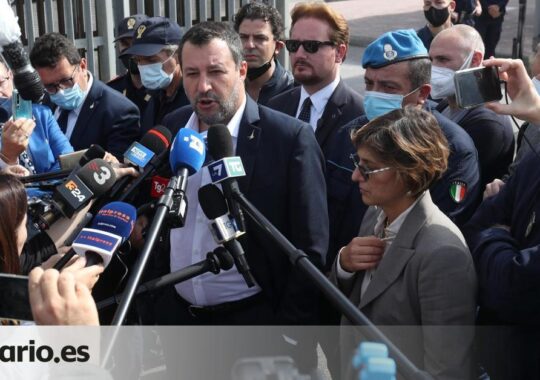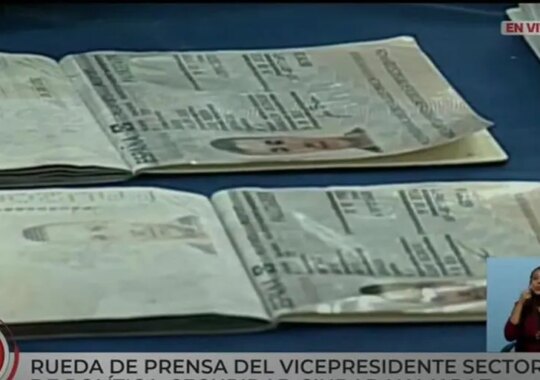8:16
Governments in Budapest and now Bratislava are walking “on the edge”, showing their central European neighbors what they can get away with and risking credibility in EU foreign policy and values, says Mark Leonard, Director of the European Council on Foreign Relations (ECFR). In his new material for the think tank, he analyzes the reasons for the split among the eurozone countries.
Photo: pxfuel.com
- Pravda.Ru publishes a translation of the ECFR material. The author’s opinion may not coincide with the opinion of the editors.
Against the backdrop of growing global multipolarity, tensions are emerging within the European Union: new member states, especially from Central Europe, practice full rapprochement with Western Europe and the United States on paper, but, unlike their older counterparts, do not always put it into practice. Instead, they take an “a la carte” approach. (The author means that a number of countries independently choose their approach to democracy. – Ed.)mixing and matching partners and values depending on the issue at hand, rather than declaring total loyalty to the West.
In the Visegrad Group countries, the Prime Minister of Hungary Victor Orban is a veteran when it comes to a la carte political decision-making. This is a dangerous example of what his Polish, Czech and Slovak colleagues, and those further afield, can get away with. Ultimately, this could pave the way for a more selective and less EU-centric Central Europe and have serious consequences for the future of the union.
Until now, Orbán has walked a tightrope regarding EU rules, carefully controlling the damage abroad when they are broken. After his meeting with the President Vladimir Putin in October, Orbán quickly explained to his Western counterparts that this was a necessary step, for example, to secure gas supplies. To maintain balance, Orbán practiced alignment when necessary. More recently, while Orban blocked new aid to Ukraine, he did not, as many in Brussels feared, veto the European Council’s decision to begin its accession process.
Orbán has made a similar attempt to balance adherence to Western liberal democratic values. In December, the Hungarian government published further judicial reforms in an attempt to secure EU funds. On paper at least, Orbán appears to be complying with the EU’s conditions. However, without much attention from abroad, the Hungarian parliament simultaneously approved a new law on the protection of national sovereignty […] Human rights groups have expressed concern about the law because it could be used against activists and journalists, which runs counter to EU values on freedom of the media and expression.
Under the rule of the Law and Justice Party, the Polish government echoed this approach to Western values, testing the boundaries of when to respect the rule of law and minority rights. But the government has taken a less hard-line approach in its many disputes with the European Commission, instead trying to find allies within the EU. For example, until very recently, Polish government officials sought allies across Central Europe to oppose the introduction of qualified majority voting and slow the impact of the Green Deal on regulation and industry.
Poland is a larger geopolitical player than its Central European neighbors. As a result, its policymakers typically push for a “special” relationship with the United States, creating regional security blocs such as the Three Seas Initiative or having direct ties to Paris and Berlin. Unlike Hungary and now Slovakia, Poland has taken a light, à la carte approach since joining the EU, choosing within the West and only occasionally outside it, as is the case with its relations with China. Under the leadership of the new prime minister Donald Tusk, former President of the European Council, the government intends to continue to take an à la carte approach to its foreign policy, while moving Poland closer to the EU’s liberal democratic values.
The change of government in Poland is a promising sign for a more united EU. But while Orbán suffers relatively little from the consequences of his EU pickiness, he is showing other central European states how to choose from the European menu only those partnerships that suit them, without ordering necessary side dishes such as the rule of law or European solidarity.
Prime Minister of Slovakia Robert Fico, certainly paid close attention to this, choosing from the menu only what suited. Speaking in opposition, Fico used rule of law arguments against the government, in line with the EU position. Now in power, he has dismantled the courts that fight organized crime, significantly weakening the rule of law, as in Poland and Hungary. And on the European stage, Fico has already established himself as a wily partner in the fight against Russian sanctions and financing of Ukraine and has joined Orbán in supporting pro-Putin rhetoric. Fico is also seeking closer ties with China on electric vehicle development, despite the EU’s risk-mitigation strategy. But, trying to maintain a balance, Fico, for example, did not object to Ukraine joining the EU.
Czechs, who have been happy for a time without a populist government, may now be starting to ask themselves why they should follow the values-based policies of their Western neighbors when their Central European compatriots can choose what suits them best. There will be elections in the Czech Republic in 2025, and opinion polls do not bode well for the current pro-European coalition.
This is especially true as the à la carte approach could be taken to new extremes when Central European countries become net contributors to the EU budget, likely by 2027, given the possibility of Ukraine’s accession. This cherry picking could then escalate into a heated debate over whether the country should remain in the EU. In many respects, the politics of Central Europe are not based on coherent ideas and long-term views of EU membership, but increasingly on a populist package of interests rather than values.
Return Donald Trump the presidency of the United States could make this transactional approach part of the daily menu. The United States is seen as a guarantor of stability much more so in Central Europe than further west. Under a second Trump administration, Central European leaders might decide to align themselves with the United States differently, especially if there is a strong sense in their societies that they can get away with adopting only some of the features, but not the entire package, of liberal democratic values and principles, not to mention already about whether such an approach will be legalized by the government. new US administration.
We are undoubtedly entering a new era of “à la carte” international relations. In this era, the introduction of qualified majority voting for the EU’s common security and foreign policy appears necessary to ensure that the EU’s actions are fully consistent with its own foreign policy. But this could be a tipping point for some Central European leaders.
The Hungarian government is said to be considering holding a referendum at the same time as this year’s European elections, which would make Hungary’s continued EU membership conditional on the release of frozen EU funds, leaving “Hexit” still a theoretical question. (Hungary’s exit from the EU. – Ed.). Since 2016, this option has become firmly established on the menu. Even if it’s clear in the UK, this dish can be hard to swallow.



